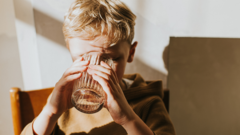Was Princess Andre's Life in Danger During a Shocking Carjacking with Katie?

Understanding the Psychological Impact of Traumatic Events
Trauma can have profound effects on individuals, particularly when it involves life-threatening situations. From fear and anxiety to long-lasting psychological scars, the aftermath of such events can be devastating. The recent accounts shared by a young reality star underscore the gravity of these experiences, revealing how they shape one's mental health and influence personal relationships. Through her story, we can gain insights into the various facets of trauma, its effects, and the resilience required to navigate the recovery process.
What is Trauma?
Trauma is defined as a deeply distressing or disturbing experience. It often results from events that threaten a person's life or physical integrity, leading to feelings of helplessness and fear. There are several types of trauma, including:
- Acute Trauma: This results from a single event, such as an accident, natural disaster, or assault.
- Chronic Trauma: This occurs from repeated and prolonged exposure to distressing events, such as ongoing domestic violence or abuse.
- Complex Trauma: This refers to exposure to multiple traumatic events, often of an invasive nature, typically occurring within specific relationships or contexts.
Personal Accounts: The Reality of Trauma
The young reality star's experience is a stark reminder of how trauma can manifest in everyday life. Being confronted with violence, particularly in the presence of family, can leave an indelible mark on a person’s psyche. Her recollections of the event—a man with a baseball bat smashing windows and threatening her family—paint a vivid picture of fear and helplessness. It’s a situation that no child should ever have to encounter, which can lead to deep-seated emotional issues.
The Role of Fear in Trauma
Fear is a natural reaction to danger, but when it becomes overwhelming and persistent, it can lead to conditions such as Post-Traumatic Stress Disorder (PTSD). The reality star's description of her experience highlights how fear can be paralyzing. She mentions, “I genuinely thought I was going to get kidnapped and die,” illustrating the intensity of her emotions during that traumatic moment.
The Long-Term Effects of Trauma
Trauma can lead to a range of psychological consequences, which may include:
- Anxiety Disorders: Individuals may experience heightened levels of anxiety, even in safe environments.
- Depression: Feelings of hopelessness and despair can emerge, leading to severe depression.
- PTSD: Symptoms may include flashbacks, nightmares, and severe emotional distress when exposed to reminders of the trauma.
- Self-Harm and Suicidal Thoughts: In the case of the reality star, she noted contemplating suicide, a tragic response to overwhelming pain.
Coping Mechanisms Post-Trauma
Recovering from trauma is not a linear process; it often requires time, support, and effective coping strategies. Here are some common coping mechanisms:
- Therapy: Engaging with a mental health professional can provide tools to process the trauma and develop healthier coping strategies.
- Support Groups: Sharing experiences with others who have faced similar challenges can foster connection and healing.
- Mindfulness and Relaxation Techniques: Practices such as meditation, yoga, and deep-breathing exercises can help individuals manage anxiety and promote well-being.
- Physical Activity: Regular exercise can improve mood and reduce symptoms of anxiety and depression.
The Importance of Support Systems
The reality star spoke about the lingering trauma and how she had learned to deal with it over time. This emphasizes the value of having a solid support system in place, whether it be family, friends, or professionals. Support systems can help individuals feel less isolated and provide the necessary encouragement to seek help and heal.
Parental Support in Trauma Recovery
For children, parental support is paramount. The reality star's mother displayed remarkable strength during the traumatic event, prioritizing her children’s safety over her own. This protective instinct can significantly influence a child’s healing journey, fostering a sense of security and love. Such parental involvement can encourage open communication about feelings and fears, which is essential for recovery.
Understanding PTSD and Its Symptoms
Post-Traumatic Stress Disorder (PTSD) is a mental health condition triggered by experiencing or witnessing a traumatic event. The symptoms can vary widely but often include:
- Intrusive Memories: Recurrent, involuntary memories of the traumatic event, distressing dreams, or flashbacks.
- Avoidance: Avoiding reminders of the trauma, including people, places, or activities.
- Negative Changes in Thinking and Mood: This may involve persistent negative thoughts about oneself or others, feelings of detachment, or difficulties experiencing positive emotions.
- Changes in Physical and Emotional Reactions: This can manifest as heightened arousal, irritability, or difficulty concentrating.
Seeking Professional Help
For those experiencing symptoms of PTSD or other trauma-related issues, seeking professional help is crucial. Mental health professionals can offer tailored treatment plans that may include therapy, medication, or a combination of both. Early intervention can significantly improve the quality of life and aid in the recovery process.
Common Therapeutic Approaches
Several therapeutic approaches have shown efficacy in treating trauma and PTSD:
- Cognitive Behavioral Therapy (CBT): This therapy focuses on identifying and changing negative thought patterns and behaviors associated with trauma.
- Eye Movement Desensitization and Reprocessing (EMDR): This approach helps individuals process and integrate traumatic memories through guided eye movements.
- Exposure Therapy: This helps individuals confront their fears in a controlled environment, gradually reducing anxiety responses.
- Medication: Antidepressants or anti-anxiety medications may be prescribed to help manage symptoms.
Resilience and Recovery
While the journey through trauma can be arduous, many individuals find resilience within themselves. The reality star's story demonstrates that healing is possible, even after experiencing profound trauma. Her acknowledgment of the ongoing impact of her experiences suggests a pathway toward recovery—one that involves facing challenges and continually seeking support.
Building Resilience
Resilience can be cultivated through various strategies, including:
- Establishing a Routine: Predictability can provide a sense of stability and security.
- Setting Goals: Small, achievable goals can foster a sense of accomplishment and purpose.
- Practicing Self-Compassion: Being kind to oneself and recognizing that healing takes time is essential.
- Engaging in Positive Activities: Pursuing hobbies or interests can foster joy and connection.
Final Thoughts: The Journey of Healing
The journey of healing from trauma is often complex and deeply personal. As illustrated by the young reality star's experience, the effects of trauma can last a lifetime, but with support and effective coping strategies, individuals can learn to navigate their emotions and reclaim their lives. The importance of having a strong support system, the role of therapy, and the cultivation of resilience cannot be overstated. Everyone's journey is different, but healing is possible.
FAQs
What are the signs of trauma in children?
Signs of trauma in children may include withdrawal, regression to earlier behaviors, changes in eating or sleeping patterns, and heightened anxiety or fear responses.
How can I support someone experiencing trauma?
Support can be offered by listening without judgment, encouraging them to seek professional help, and showing understanding and patience during their healing process.
Is it normal to feel anxious after a traumatic event?
Yes, it is normal to feel anxious after a traumatic event. However, if anxiety persists or interferes with daily life, it is important to seek help.
As we reflect on the resilience of those who have faced trauma, it's essential to remember that healing is a journey. How can we create supportive environments that foster this healing? #TraumaAwareness #MentalHealthMatters #HealingJourney
Published: 2025-08-12 08:45:51 | Category: Entertainment



